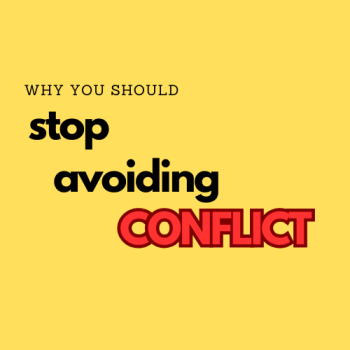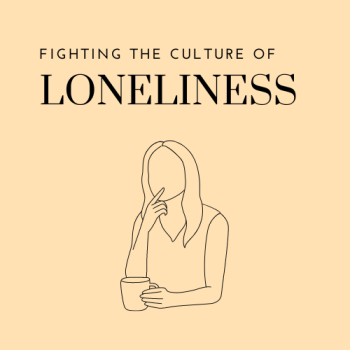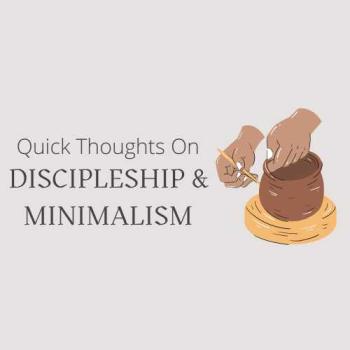
The Way
I’m making an assumption that if you’re reading this, you identify as a Christian. When I say “we” and “us,” that is who I’m referring to, my fellow brothers and sisters in Christ. I don’t normally take the time to draw those lines to define my terms, but I think it matters here.
Why?
Well, nothing I will say here will make sense unless you’re a follower of The Way (what Christians were called before the term “Christian” was coined). In fact, I’d expect just about everything that will be written here to be sort of foolish to anyone who doesn’t know and follow Jesus. The Bible says as much.
The Apostle Paul writes, “For the message of the cross is foolishness to those who are perishing, but to us who are being saved it is the power of God” (1 Corinthians 1:18).
When I was new to my journey with Jesus, I didn’t understand this verse. I grew up in a Christian home and inside a Western culture that has been influenced heavily by Christian values. What I understood of Christianity didn’t seem foolish, it seemed like the way things were, just… how they were done.
Going to church on Sunday, hear that Jesus loves you, asking for forgiveness for your sins, believing in one God… none of this ever felt foolish to me. I never even struggled with understanding that my wrong actions were sins. Right and wrong made sense to me.
What I’m saying is this: early on, following Jesus never had even a moment of feeling foolish; it always felt right.
Today though, after following Jesus for more than a decade, this verse resonates with me in a way it never has before.
You see, following Jesus isn’t a thing of belief alone. Oh, belief and faith are central to it, sure, but actions are vital as well. In fact, James (the brother of Jesus) writes, “What good is it, my brothers and sisters, if someone claims to have faith but has no deeds? Can such faith save them? Suppose a brother or a sister is without clothes and daily food. If one of you says to them, ‘Go in peace; keep warm and well fed,’ but does nothing about their physical needs, what good is it? In the same way, faith by itself, if it is not accompanied by action, is dead,” (James 2: 14-17).
Saying someone’s faith is “dead” is pretty crazy, especially for a faith system in which our Savior came to give us “new life” (Romans 6:4). But it’s true! Our actions, what we do because of the faith we have, is what truly shows us to be followers of Jesus.
And it is this, in my actions, where I often know that I appear to be a fool to those around me.
Not my faith, but what my faith leads me to do.
Or, as is the case today, what it leads me to not do.
When The Way Is Just A Way…
No one so much as blinks if you tell them you’re a Christian today in America. Sure, someone online may rant, rave, or make an ugly post, but no one is surprised that you and I may claim to follow Jesus. Our nation is filled with churches and has been heavily influenced by Christianity through its rather short time as a nation, and a great number of people today still identify as “Christian.”
Plus, in a lot of cases, the life of someone who is a Christian looks very similar to the life of someone who doesn’t make that same claim.
I know that’s the case for me more often than I’d like to admit.
I worry about money some days, dream about having different stuff on other days, struggle with anger and irritation most days, and I fit into an uncomfortable number of “millennial boxes” that essentially indicate I’m a product of my culture (I like Harry Potter and avocado on toast… please forgive me).
That description probably sounds like most people.
Maybe it even sounds like you (minus the avocado and toast).
I think it’s reasonable to ask ourselves, like really ask ourselves, do I look different than the world around me? Let’s go beyond the type of music you listen to, the fact that you don’t curse, and that you serve at your church. Really, truly, ask yourself if you are different from the world.
Let me point you in a direction that may help bring some clarity. It’s a simple question that quickly and easily cuts through those of the Way and those who aren’t.
Ready?
How do you treat those with whom you disagree?
Or, let’s up the stakes. How about those who disagree with you so much, they demonize and hate you?
The Normalization of Demonization
The world knows how to love.
That may sound crazy at first, but I mean it. Pretty much every person on earth, Christian or not, knows how to love. Personally, I think it’s because we’ve all been made in the image of God, and so loving is a part of who we are.
The problem is, though, most everybody in and of the world loves others with exceptions. They may love until this or until that.
If you love me, I’ll love you.
Christians aren’t supposed to love with exception though, and that’s what should make us different.
The author Luke records Jesus saying, “If you love those who love you, what credit is that to you? Even sinners love those who love them,” (Luke 6:32). Jesus agrees that sinners love those who love them, and do good to people they receive good from. Nothing special about that. It isn’t foolish, it’s normal. It’s human.
But Jesus gives a command that goes way beyond the normal.
He continues on, saying, “And if you do good to those who are good to you, what credit is that to you? Even sinners do that. And if you lend to those from whom you expect repayment, what credit is that to you? Even sinners lend to sinners, expecting to be repaid in full. But love your enemies, do good to them, and lend to them without expecting to get anything back. Then your reward will be great, and you will be children of the Most High, because he is kind to the ungrateful and wicked,” (Luke 6: 33-35).
Love your enemies. And not just that, but also do good to them.
Christians know this verse. Most of us even believe that this is what we should do and probably think that’s what we have been doing.
Well, let me go back to the question I asked earlier.
How do you treat those with whom you disagree?
Politics brings this out in us like nothing else, so let’s go there. Recently the Biden administration signed into law a bill to use tax dollars to bring student loan debt relief to those who meet certain criteria. You probably have an opinion about this.
I have an opinion about this.
Out of curiosity, if I told you my opinion and you disagreed with it, would that change how you continue reading?
What did you do when you heard this news? On social media, did you post a meme criticizing the other side? When you are around those who agree with you, what do you say about “those people” on the other side of the aisle? Do you think of that “other side” as the enemy to be argued with, debated, ridiculed, ignored, canceled, yelled at, protested against, or ignored?
If you supported the debt relief, did you grieve with those who are upset by it?
If you opposed it, did you celebrate those who were blessed by it?
If no, why not? Doesn’t Paul write, “Rejoice with those who rejoice and mourn with those who mourn” (Romans 12:15)?
I know I’m rattling cages a bit here, but follow me on this. Many of us say we believe Jesus when He says we should love our enemies, but many of us don’t do things that are loving. We believe in our hearts, but it doesn’t reach our hands, feet, mouths, or Facebook posts.  Instead, many who claim to be in the Church partake in the demonization of other people, treating them as the enemy to all things good.
Instead, many who claim to be in the Church partake in the demonization of other people, treating them as the enemy to all things good.
In other words, we demonize people, making them out to be one-dimensional, evil beings who lack the complexities and nuances of real people.
We should expect that from people in the world, of course. According to Jesus, they love those who love them, and (by implication) hate those who hate them. It’s simple, natural, and human. Minus the work on the cross, ugly memes and talking about “those people” makes total sense.
Christians though, people of The Way, we should look like fools to those people.
When others hate, we should love.
When those in our political party criticize the character of those on the other side of the aisle, we should be the first to bring the temperature down, remove the sarcasm and criticism, and do good.
We should be praying for blessings over the people who disagree with us, no matter their political stance. Moreover, I don’t mean pray at them (“Dear Lord, please convict them of their wickedness and convince them of my stance on…), I mean pray for them (“Dear Lord, please bring blessings down on so and so, and show them your mercy and kindness”).
Why?
Well, because Jesus commanded it, for one. Also, because we’re not of this world.
You see, back in 2010 I gave my life to Jesus Christ. He became my Lord and my first allegiance, above all things. This wasn’t a merely religious decision; it was a full life decision that governs everything. Peter writes that I am a part of a “Holy Nation,” and he wasn’t writing about America (1 Peter 2:9). My primary nation of allegiance is to the Kingdom of God.
And this Kingdom has an Enemy, a very real one. However, the enemy isn’t a Democrat or a Republican.
You already know where this is going, don’t you?
Paul writes in Ephesians “For our struggle is not against flesh and blood, but against the rulers, against the authorities, against the powers of this dark world and against the spiritual forces of evil in the heavenly realms,” (6:12).
If I were merely an American, my enemies would be those across the aisle (or the ocean) who stand in the way of the America I want to see.
But I’m not merely an American. I’m a citizen of a Holy Nation whose Enemy is in the spiritual realm. When I spend time demonizing other people I further the work of the Enemy, of demons.
When I spend time loving other people and doing good to those who hate me, I further the work of Jesus.
Ask yourself, whose work are you furthering?
Foolishness at Work
The work of Jesus, for the record, will look like foolishness to others.
Loving others won’t move any of our political agendas forward, for example. Or, moving away from politics, loving others (probably) won’t grow your career. Loving others will surely cost you money and time (so much of both!), and it will likely mean you keep your mouth shut when you want to open it, and open it even when you’re afraid to.
Loving others means so much pain. Seriously, we believers should be more honest about that. C.S. Lewis famously wrote, “To love at all is to be vulnerable. Love anything and your heart will be wrung and possibly broken.”
Loving others may mean continuing relationships you’d rather end, simply because you hear the Lord telling you He isn’t done with them yet.
Loving others means being misunderstood… a lot.
Loving others means we choose unity with the Church rather than fighting to have things our own way. Remember, Jesus prays that we would be one with each other in the same way that He was one with the Father (see John 17).
Listen, loving others will mean we lose by the world’s standards.
How do I know that? Because I serve a Lord and Savior who came to earth not as a conquer, but as a baby. Jesus lived a sinless life and then was murdered in a terrible, humiliating, and painful way by the very people He came to save.
Nobody thinks that’s winning.
But, He conquered death, rose again, appeared to His followers, and sent them out to “go and make disciples of all nations, baptizing them in the name of the Father and of the Son and of the Holy Spirit, and teaching them to obey everything” (Matthew 28: 19-20).
Well, those followers were winners then, right? Jesus died for them so that they could live, right?
Spiritually, yes. Spiritually, they were more than conquerors!
Their time on earth probably didn’t feel so victorious from the outside though. They went into the world to make disciples and faced prison, hunger, beatings, humiliation, being misunderstood, ridicule, and eventually death. In fact, the very people doing these terrible things to them were the people these followers of The Way loved.
Stephen prayed for those who killed him, Paul preached the gospel to the guards who beat him, and Peter and the others preached the good news to the very Jewish leaders who continually ordered them beaten.
They didn’t cancel them, post sarcastic memes, or wish they’d go away. No, these early followers never forgot who their true Enemy was because they never lost sight of who their true Master was. How could they? They weren’t being beaten because they had a new religion (Rome was filled with religions, it would have been normal!); they were suffering because they had a new Lord, a new allegiance.
In fact, the term “Christian” was coined as a political one, not a religious . Essentially you could translate the meaning of the word to “of the party of Jesus” (for more, see this deep dive by Relevant Magazine). Just process that for a minute.
Listen, the early men and women of our faith weren’t suffering to save the Jewish faith; they were suffering to save Jews. They weren’t suffering for the heart of the Roman nation, they were suffering because they were trying to reach the hearts of Romans.
None of these should surprise us, because we’re also doing the “foolish” work of following Jesus, right? We too are putting down everything, laying aside all our opinions and selfish desires, in an effort to say with Paul, “I have become all things to all people so that by all possible means I might save some” (1 Corinthians 9:22).
That’s us, right?
We’re doing good to the coworker who talks poorly about us, the political leaders who seek to use us, the Facebook user who throws abuse our way… aren’t we?
I wish I could say I thought we were, but I’m not so sure.
When the world shakes around us, when our person doesn’t get elected, when we don’t get the promotion, when the economy goes sideways… I’m not so certain we always act so differently than the world does.
A Not-So-Subtle Call to Action
For some of you, this has been a head-nodder. The Lord has affirmed what you’ve already been doing and perhaps I’ve put words to feelings you’ve had.
For the rest of us, we need to repent.
We’ve been treating people as if they’re the enemy, and not the mission. We’ve treated others as if they should conform to us, rather than seeing us as people who become what others need so they might know Christ.
We have pretended as if our personal and private beliefs were enough, as if doing good to those who hate us wasn’t actually required. We’ve forgotten the world can tell who our Master is by who we consider our Enemy to be.
For me, I realized I was going astray in this area about two years ago. If you would have listened to just my ranting and raving, you could have easily known who I thought the enemy was, and by default who my master was.
Through the Scriptures, good teaching, and patient mentors, I realized just how far astray I’d gone in this area. Therefore, I started praying. I asked for forgiveness for my sins, and asked that the Lord would help me starting loving “those people.”
It wasn’t long after that the Lord started bringing some of “those people” into my life and they started to grind my gears (you know what I’m talking about, when they say “those things”).
And I took a deep breath and started praying for them. Not at them, but for them.
And then I blessed them with good deeds (giving my attention, my time, my resources, my prayers).
Sometimes those old feelings rise up, if I’m honest, but now I know where those feelings come from. They come from the real Enemy of the Church, the one who comes to steal, kill, and destroy (John 10:10). Knowing where those thoughts come from allows me to take those thoughts captive and make them obedient to Christ (2 Corinthians 10:5). And what does that mean, to make my thoughts obedient to Christ?
For me, it sounds something like this prayer.
Lord,
I don’t believe my feelings right now. I love this person, but I don’t know how to show it right now. Please help me love with my actions and deeds. Also, can you bless this person? Show them your love and kindness the way you have for me. Can you tell me, Lord, is there anything you’d like me to do for them? Show me, and I will obey.
In the mighty name of Jesus, I pray,
Amen
For more content like this, check out the Living Room Disciple Podcast on Spotify, Apple Podcasts, or YouTube.













